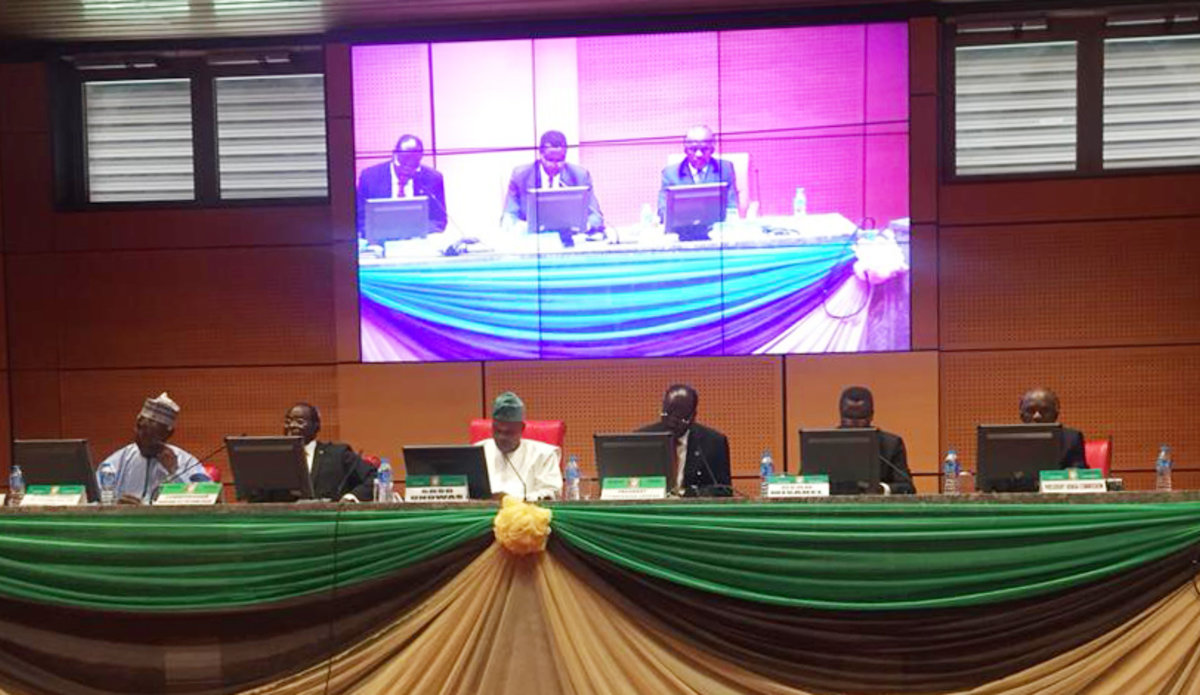High level meeting of regional organisations on the Sahel - Opening Remarks SRSG Mohamed Ibn Chambas
Special Representative of the Secretary-General and Head of the United Nations Office for West Africa and the Sahel (UNOWAS), Mohamed Ibn Chambas
High level meeting of regional organisations on the Sahel
Abuja, 18 September 2018
Your Excellency Mr. Jean-Claude Brou, Chairperson of the ECOWAS Commission,
Your Excellency, Mr. Pierre Buyoya, High Representative of the African Union Mission for Mali and the Sahel,
Your Excellency, Mr. Maman Sidikou, Permanent Secretary of the G5 Sahel,
Distinguished Heads of Regional Organisations,
My dear colleagues from the United Nations,
Excellencies,
Ladies and gentlemen,
All protocols observed
I am very pleased to be here today and I thank our host, ECOWAS, and the African Union, for having brought together in this event the principal regional organisations working in the Sahel.
Our presence here today is a clear demonstration of our shared commitment to the peace, security and development of the West Africa and Sahel space.
This event should be a decisive step in our efforts to further harmonise our partnerships, build synergies and develop joint interventions.
Excellencies,
Ladies and gentlemen,
This year has seen increased mobilization for the region, with renewed efforts to tackle the threats to stability and development. Nevertheless, the security situation in the Sahel and Lake Chad Basin remains fragile, as we note increasing violence in Mali, Burkina Faso, Niger and Nigeria. On this note, let me express our sympathy and solidarity with Nigeria for the killing of a midwife after her abduction. We express our solidarity to her family. I would like to reiterate our commitment as the United Nations, to continue working closely with Nigeria in the fight
Violence and terrorist activities, as well as conflicts between nomadic herders and farmers take an alarming toll on the population and on the future generations. The violence related to pastoralism is particularly concerning, as it increases in frequency, intensity, complexity and geographic scope.
This year has also shown the continuous impact of climate change and food insecurity on the Sahel population. Socio-economic inequalities, including the lack of access to basic rights, services and economic opportunities, violence and challenges to the role and participation of women, continue to hamper progress and development.
In view of these challenges, for several years, all of us have mobilized and launched responses - each with our own specificity. Gaps in coordination, and lack of harmonization have been raised many times during our meetings of the Ministerial Platform of coordination of Sahel strategies, since 2014.
Nonetheless, we should acknowledge the valuable lessons-learned from the various initiatives designed to assist the region, and the successes achieved:
At present, with continuous challenges concerning funding, it is especially relevant to reaffirm our common objectives, but also to be candid concerning our difficulties.
Excellencies,
Au cours de cette année, nombre de nos organisations ont adapté leurs cadres stratégiques. L’Union africaine a revu sa Stratégie pour le Sahel, afin de combiner les aspects sécurité et développement. De nouvelles priorités ont ainsi été identifiées, ouvrant la voie à une collaboration accrue et une mise en œuvre conjointe.
A son tour, l’ONU a fait d’importants efforts pour améliorer son appui à la région. Un Plan de soutien pour le Sahel a ainsi été élaboré autour de six priorités, en vue d’une réponse accélérée aux défis actuels et d’un impact rapide. Je suis ici avec mon collègue, Mr. Ibrahim Thiaw, Conseiller Spécial du Secrétaire général pour le Sahel, qui présentera ce Plan et les initiatives et programmes conjoints à venir. Ibrahim nous indiquera également les tendances, s’agissant des ressources financières mobilisées – ou mobilisables – pour la région.
Excellences,
Mesdames et Messieurs,
L’ampleur des défis dans la région du Sahel appelle à une mobilisation collective. Cette réunion, permettra à toutes les organisations régionales de partager leurs expériences respectives. Il devrait également être le point de départ, alors que nous nous efforçons d’une part, à nous adapter à un contexte mouvant en vue d’une meilleure efficacité, d’une meilleure complémentarité, et, d’autre part, à unir nos forces.
Je suis convaincu que notre réunion d’aujourd’hui permettra de mieux appréhender la capacité de réponse existant dans la région et les possibilités de réalisations communes.
In conclusion, let me assure you of the continued commitment of UNOWAS and the United Nations to working with you to bring lasting peace, stability and inclusive, sustainable development to the Sahel.
I thank you for your attention.
Je vous remercie.
 UN
UN


